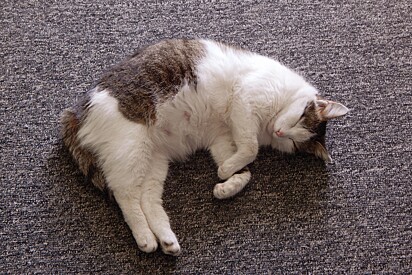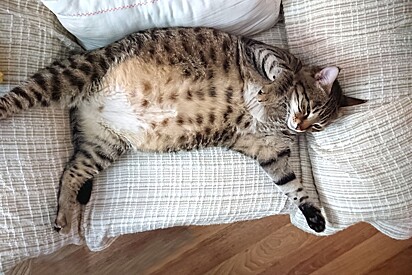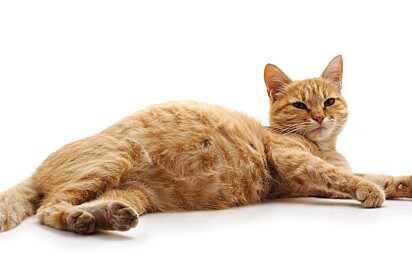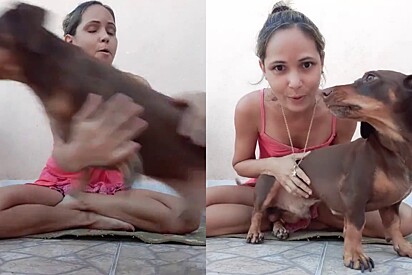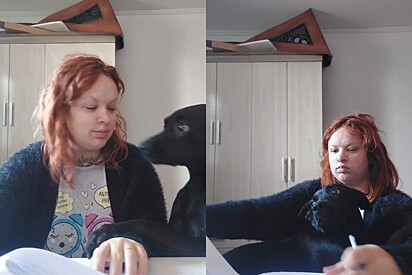How to Know if a Cat Is Pregnant? Veterinarian Explains the First Signs
By Gabriele Tancredo Stella in CatsKnowing whether a cat is pregnant can be challenging, especially for those without veterinary knowledge. That’s why Amo Meu Pet (our Brazilian website about pet news) spoke with veterinarian and animal behavior specialist Vitor Gonçalves Teixeira to better understand feline pregnancy.
One of the first signs of pregnancy in cats is enlarged and pinker nipples. According to Vitor, this usually occurs between 15 and 18 days after ovulation.

“During pregnancy, a cat’s weight gradually increases. Nipple development intensifies during the last third of pregnancy, becoming even pinker, and milk production usually begins about 24 hours before birth,” he explains.
The animal behavior specialist also notes that pregnancy can be clinically diagnosed as early as day 17 of gestation, through palpation of small spherical structures in the abdomen.
“Fetal heartbeats can be heard during auscultation in the final 15 days of pregnancy,” he adds.
Other Symptoms and Nonverbal Signs
Just like humans, cats can also experience symptoms related to pregnancy. However, these symptoms may appear at different stages.
“In the final third of pregnancy, it’s common for cats to experience nausea, weakness, and fatigue. Additionally, their body temperature typically drops by 1 to 2°F about 12 hours before giving birth,” says Vitor.
In cats, gestation lasts between 65 to 66 days and, normally, behavioral changes are observed more in the last weeks of gestation.
“It is common to observe behavioral changes in relation to human company, both in the sense of seeking it and in the sense of avoiding it. As pregnancy progresses, there may be a decrease in food intake and prostration,” lists the veterinarian.
Vitor also points out that a week before giving birth, the cat may exhibit nesting behavior, that is, the felines look for an isolated place where they can give birth peacefully and, after giving birth, keep their kittens safe.
What Tests Confirm Pregnancy?
Unlike women, who produce human chorionic gonodatropin (hCG), cats do not produce pregnancy-specific gonadotropins, meaning that laboratory tests do not detect pregnancy.
Vitor emphasizes that ultrasound is the preferred imaging method for detecting and monitoring feline pregnancy, and he cautions:
“Although radiography can be used for confirmation, it is not applicable or recommended for all clinical cases.”
Contraceptive Methods
A few decades ago, it was common to prescribe contraceptive drugs to prevent pregnancy in cats. However, Vitor points out that these medications can cause serious side effects.
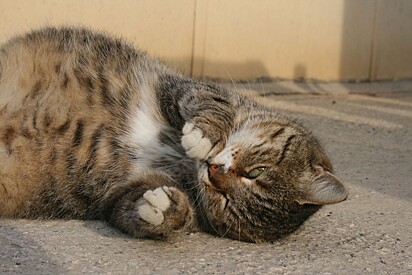
“Their use can lead to mammary hyperplasia, mammary tumors, endometrial hyperplasia and mineralization, pyometra, miscarriage, delayed labor, birth defects, and even fetal death if administered during pregnancy. Therefore, their use is not recommended,” he warns.
Can I Use Any Medication During My Cat's Pregnancy?
Vitor reminds us that each pregnancy is unique. “It’s important to emphasize that no medication should be given during pregnancy without guidance from a veterinarian familiar with the cat’s specific case,” he concludes.
Want to learn more about animal behavior? Follow Vitor on Instagram here!

